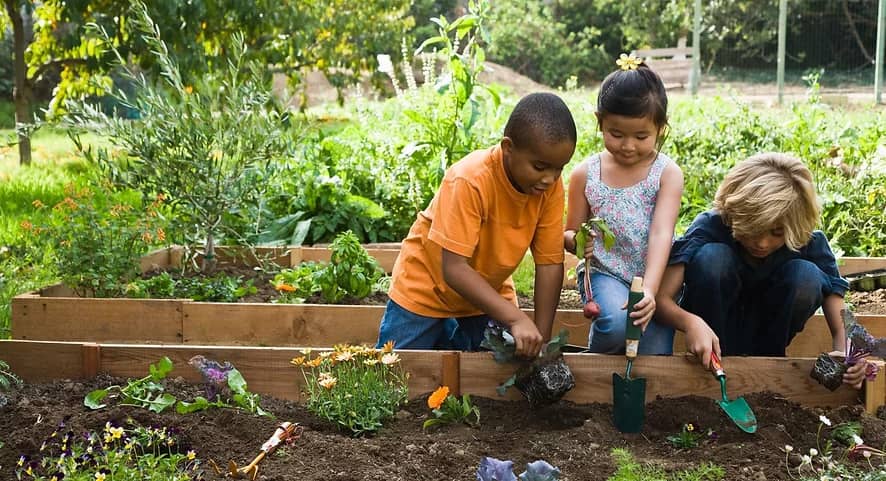
Allotments
Benefits of having an allotment
- exercise
- fresh fruit and veg
- no pesticides
- social
- fresh air
- healthy
- sense of community
- education
The health benefits of allotment gardening are significant!
- Mental health benefits include improved mental well-being, reduced stress and anxiety, and increased self-esteem and confidence.
- Physical health benefits include getting more exercise, eating better, and lowering the risk of getting chronic diseases.
- Social benefits include building community, expanding knowledge and skills, and creating connections with nature
Being out in the open air, working with the land and exercising is good for your mental and physical health. According to the National Allotment Society
The satisfaction of eating something you’ve grown yourself is hard to beat. Think about the sense of achievement you get from growing something from seed and the fact that you know exactly what you’re eating, where it’s come from, how long it’s travelled and what it’s been treated with.
Learning about different varieties of fruit and veg and how to grow them is a great skill to have as an adult but it’s also a wonderful way of helping children to understand where our food comes from.
It’s surprising how different and more delicious the food you grow tastes from what you buy at the supermarket. Potatoes taste more earthy, sweetcorn cooked within an hour of being picked is unbelievably sweet, peas eaten straight from the pod taste wonderfully fresh and tomatoes plucked straight from the plant that is still warm from the sun are simply divine.
Did you know?
Public liability on allotments
In today’s no-win, no-fee society, compensation claims are frequent. When you rent an allotment, you take on a responsibility to keep people safe on it. That includes people you have not invited onto the land as well as friends or neighbours who are helping you with the harvest.
If you leave dangerous equipment lying around, an injury can occur. For example, a fork left on the edge of a path can cause significant injury. You can then be sued for compensation. Even if you are found not liable, solicitor fees to defend your case can quickly mount up. If you are found liable, you’ll have to pay compensation. Public liability insurance covers all your legal costs.
How to save money on allotment insurance
Like all insurance, you get what you pay for. The cheapest deals might not always give you the cover you need, and that can cost more in the long run. Instead of skimping, follow our tips to save money on allotment insurance:
- Shop around. Don’t just accept the first quote you get or your renewal quote. Shopping around for the best deal will almost always save you money. If you don’t have time or don’t know where to start looking, use a specialist broker like Park Insurance to the leg-work for you. Insurance brokers use their industry knowledge and buying power to negotiate great value prices that are often not available on the high street.
- Pay annually. Splitting your premium over 12 months means you’ll pay extra in the form of credit. If you can afford to pay in one go, do it – it will cost you less.
- Tweak your excess. The excess is the amount you’ll pay if you make a claim. The higher the excess, generally the lower the premium. Just take care not to set the excess too high or making a claim could become unaffordable.
OR
Contact The National Allotment Society for further advice.
Fairfields Community Council owns and manages two allotment sites.
Maximus Court Allotment Site
(near primary school)
- 60 Total Plots
- 27 Vacant Plots:
MX03, 06, 07, 09, 11, 23, 27, 28, 29, 30, 34, 35, 36, 38, 40, 45, 46, 47, 48, 49, 52, 53, 57, 60
How do I apply for an allotment?
- Complete an application form.
- The Clerk will acknowledge receipt and then inform you of the availability, depending on which site you choose (if no immediate availability, you will go onto the waiting list).
- If a plot is available, the Clerk will arrange a suitable date and time for you to view the plot.
- If you agree to take the plot on, you will be required to pay a deposit of £50 within 48 hrs to secure the plot.
- Once your deposit has been received, you will then get a tenancy agreement and invoice (pro rata) for the annual rent of your allotment plot.
- Before you sign your tenancy agreement, it is very important that you read and understand the Allotment Rules & Regulations, as this is a legally binding agreement.
Allotment Charges
| Plot Size | Deposit | Annual Charges | |
|---|---|---|---|
| Rent | Admin | ||
| 75 sqm | £50 | £40 | £10 |
| 125 sqm | £50 | £55 | £10 |
Deposit: The tenant will be required to pay a deposit at the beginning of their tenancy agreement. Failure to leave the plot in the condition required by the Tenancy Agreement, will result in the Council not returning the deposit and any additional costs incurred shall be charged to and payable by the tenant.
The National Allotment Association Helpful Hints
These files may not be suitable for users of assistive technology and are in the following formats: .pdf. Request an accessible format.
